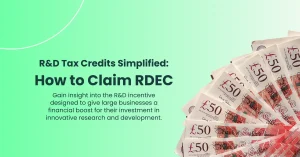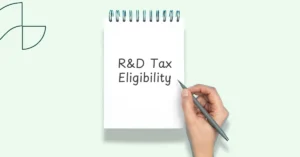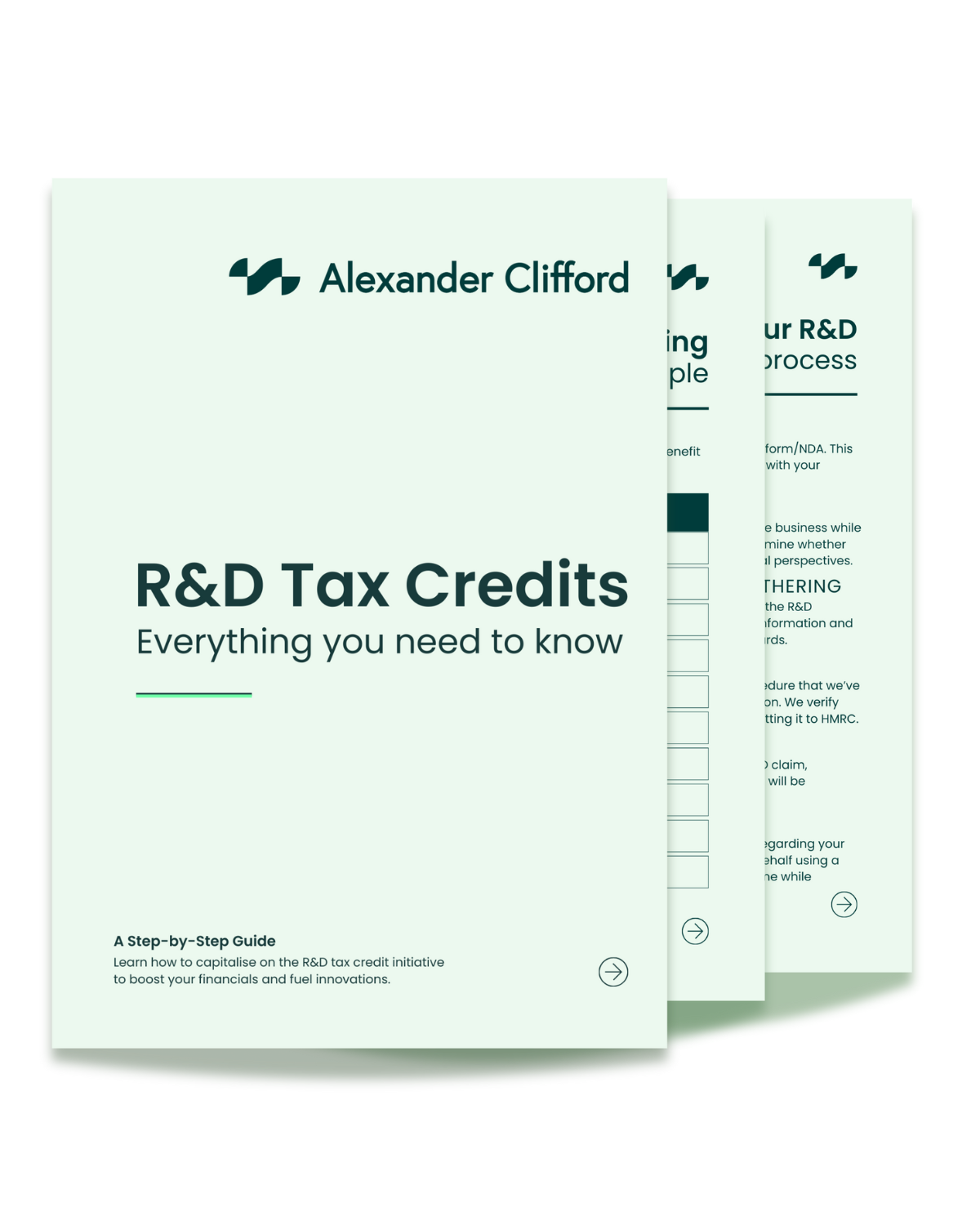R&D Tax Credits: A Game Changer for Long Term Projects

Support your long term research and development projects with a tax incentive that’s dedicated to innovative advancements. Learn more about R&D tax credits for long term projects from the eligibility to the support a specialist consultant may be able to provide. Explore the common mistakes made in R&D tax credit claims, how to avoid them, and how to prepare for a claim ahead of time.
R&D tax relief isn’t reserved for small projects. In fact their diversity is able to support long term projects that seek to make advancements using science and technology, giving businesses a financial break throughout the research and development phase.
For many investing in such projects there remain a range of questions surrounding R&D tax credit eligibility. In our effort to simplify the claims process, we made it our mission to answer all of these questions and present them all in one place, saving you hours of scouring the internet.
How Do Research & Experimentation Tax Credit Work?
Companies investing in long term R&D projects can claim a tax credit for eligible research expenses. For example, if you spend £100 on qualifying innovation, you might receive around £21.50 back either as a cash benefit or a reduction in your Corporation Tax. This incentive helps offset the high costs of developing new products, processes, or services while overcoming scientific and technological challenges.
Understanding R&D Claims for Long Term Projects
Qualifying research and development projects require experimentation, problem solving, and innovative techniques that lead to advancement – something that can span the course of years. This is what we call a long term project.
Of course, long term projects can become quite costly for businesses that are actively pursuing innovative development, which is where R&D tax credits can play a major role.
In order to qualify for the tax incentive however, businesses must adhere to strict guidelines, and ensure that they fit the eligibility criteria.
4 Eligibility Criteria for Long Term Projects
Understanding the eligibility for R&D tax credits helps to prevent businesses from filing a claim that may later lead to an HMRC enquiry. These criteria are as follows:
- Your project should seek to achieve an advance in technology or knowledge
- You need to demonstrate that your work involves scientific or technological uncertainties that your team is trying to resolve
- A significant part of the funding must be spent on eligible R&D activities
- Your business must be subject to corporation tax
Common Challenges Faced in R&D Tax Credit Claims
Paying attention to the challenges that often arise in the process of claiming R&D incentives is essential for maximising the benefits of long term projects. When traversing the complexities of R&D claims, here are some common mistakes to be aware of:
- Lack of understanding: Businesses may struggle with grasping the intricate criteria and documentation needed for successful R&D claims
- Resource constraints: Limited financial and human resources can hinder the ability to invest in R&D activities and claim incentives
- Technological complexity: Keeping up with rapidly evolving technologies and their application in R&D projects can pose difficulties
- Regulatory compliance: Meeting the strict regulatory requirements and standards set forth for R&D claims can be a challenging task
How to Avoid Making Mistakes in an R&D Tax Credit Claim
Occasionally, businesses may overlook the potential for maximising their R&D claims due to a lack of awareness or understanding of best practices. To help you make the most of your claim, here are some best practices to take into account:
- Maintain detailed records
- Regularly review policy and legislation
- Consult R&D tax credit expert
By consulting with a credible R&D tax credit specialist, you can be certain that your long term research and development project is eligible for the incentive, and that your claim is compliant with the latest HMRC rules and regulations. This is where our experts here at Alexander Clifford may be able to provide support.
Book a quick call back
Preparing for your R&D Tax Credit Claim
To help you effectively prepare for your R&D tax credits claim, it’s important to organise documentation and to calculate your qualifying expenditure ahead of time – even if you’re planning to work with an R&D tax credit consultant. By being this organised ahead of time, you’re able to clearly identify everything that may be pertinent to your claim.
Documentation and Record Keeping
Good record keeping is helpful, but great record keeping can help you to build a solid foundation for your claim. When it comes to maintaining documentation, we recommend that you keep track of everything related to your research and development project, including:
- Project descriptions
- Staff contributions (including hours dedicated to R&D activities)
- Dates and timelines
It is also important to save all relevant invoices, receipts, and contracts related to your projects, as the invested expenditure will form the basis of your R&D tax credit claim.
Calculating Qualifying R&D Tax Credit Expenditure
Using your well kept financial records, calculating your qualifying expenditure is pretty straightforward. You can do this by following these steps:
- Identify qualifying costs
- Determine the R&D tax credit scheme your claim qualifies for
- Use an R&D tax credit calculator
Documenting how you calculated these costs will provide supporting evidence that helps your claim to stand up to potential scrutiny.
FAQ’s
Navigating the R&D tax credits system can seem complicated, and leads to a lot of unanswered questions. So to help you gain a greater insight, we’re taking some time to answer some of your most frequently asked questions.
Are R&D Claims Limited to Specific Industries or Sectors?
No, R&D claims are not limited to specific industries or sectors. They are open to all businesses engaged in research and development activities. Eligibility is based on the nature of the work done, not the industry, unless the innovation is being made in:
- The arts
- Humanities
- Social sciences (including economics)
What is the Deadline for Submitting R&D Claims in the UK?
The deadline for submitting R&D claims is usually two years after the end of the accounting period in which the costs were incurred. It’s important to plan ahead to ensure you submit on time.
How Can I Determine the Financial Benefits of R&D Relief?
Determining the financial benefits of R&D claims involves evaluating eligible activities, costs, and tax incentives. Understanding the potential gains alongside compliance requirements can help businesses make informed decisions. Consulting experts for guidance is essential.
How Alexander Clifford Can Help With R&D Tax Credit Claims for Long Term Projects
Here at Alexander Clifford, our expert consultants are dedicated to supporting clients throughout the longevity of their research and development projects. This dedication has allowed us to compile and submit upwards of 2,400 claims on behalf of our clients.
Our expertise on HMRC legislation and policy ensures that businesses like yours get the greatest service, as each claim adheres to the strict HMRC policies put in place to protect the tax incentive.
This is what makes Alexander Clifford your trusted choice for R&D tax credits.
For high quality consultation in regards to your R&D tax credit claim, enter your details into the form below and get a call from one of our specialists within 15 minutes.
Get a decision on your R&D eligibility from a qualified specialist in 15 minutes.







